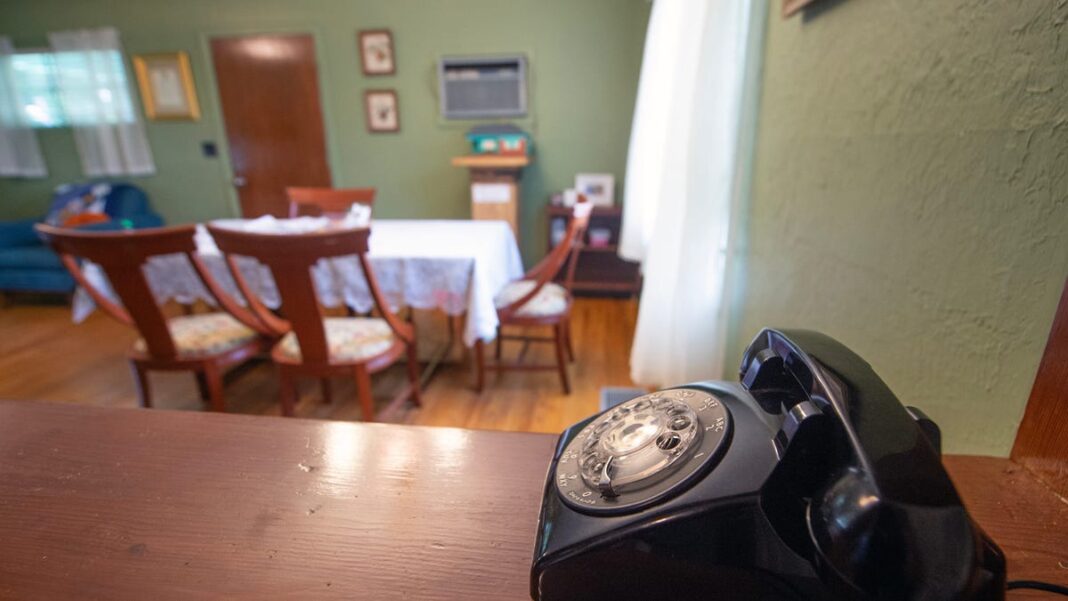AT&T to phase out copper wire phone lines for most customers. Who will be affected?
AT&T has announced plans to discontinue its conventional landline phone services in most states across the U.S. by 2029.
The company argues that its copper wire system is outdated and expensive to maintain, claiming that fiber and wireless broadband offer superior service, although this enhanced service won’t apply to traditional landlines.
Consumer rights advocates are expressing concerns about the removal of standard phone services. They highlight the necessity of basic landlines for vulnerable populations, such as elderly individuals who prefer not to use mobile phones, consumers with limited financial means, and residents in rural areas lacking reliable cell or internet service.
In which areas does AT&T offer landline services?
Currently, AT&T offers traditional landline services in 21 states, but has excluded some from the Northeast and Northwest. The company’s plan to eliminate these services will leave only California unaffected, according to a spokesperson from AT&T. Earlier this year, California regulators denied AT&T’s request to be released from its obligation to maintain its copper-wire network.
“We are assisting our customers during this transition,” said a spokesperson. “No customer will lose access to voice or 911 services.”
“We have been collaborating with both state and federal officials to update the regulatory frameworks,” the spokesperson added. “This process has been in progress at the state level along with discussions with the FCC (Federal Communications Commission).”
Are landline phones still in use?
The number of telephone companies providing basic landline services is declining because they consider the copper wire infrastructure outdated and costly. Additionally, consumer preferences are shifting toward mobile phones and other alternatives.
According to an AT&T representative, only 5% of its residential customers maintain landline services.
Nationwide, the figure of households with landline phones is decreasing, as previously reported by YSL News.
Since 2007, the National Health Interview Survey by the U.S. Centers for Disease Control and Prevention has kept a record of households that only utilize wireless services.
Recent reports indicate that over 75% of Americans live in households without landlines: 76% of adults and 87% of children by the end of 2023, according to the latest information from the CDC.
This data aligns with estimates from Gartner, which projected that by 2024, around 80% of all individual voice communications will occur through mobile devices, with just 20% relying on landlines. That 20% corresponds to about 88 million lines throughout the country, as stated by Lisa Pierce, a Gartner research vice president, in discussions with YSL News.
What are AT&T’s future plans?
In a press release, AT&T announced its intention to broaden what it regards as the “largest fiber broadband network in America.” The company expects that by the end of 2029, it will have expanded fiber access to over 50 million locations.
An AT&T representative emphasized that copper wire services are inefficient, wasteful in terms of energy, and do not comply with demands for “speed, reliability, and always-on connectivity.”

